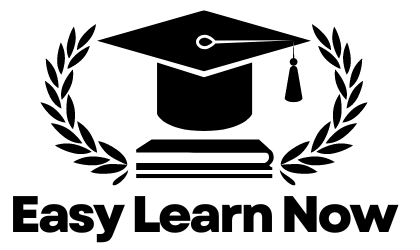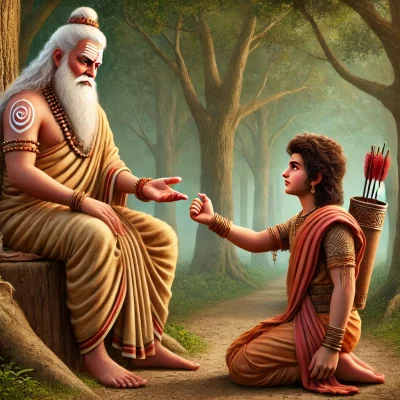SSLC English Question and Answer: Buttoo
Looking for SSLC English Studies textbook answers? You can download Chapter 9: Buttoo Questions and Answers PDF, Notes, and Summary here. SSLC English 1st Language solutions follow the Karnataka State Board Syllabus, making it easier for students to revise and score higher in exams.
Karnataka SSLC English Textbook Answers—Reflections Poem 9
Buttoo Questions and Answers, Notes, and Summary
Class 10 English Chapter 9
Buttoo
Scroll Down to Download Buttoo PDF
Comprehension I. Buttoo
Question 1:
Why did Buttoo approach Dronacharya?
Answer:
Buttoo sought out Dronacharya to acquire knowledge and training in the art of archery.
Question 2:
How did Dronacharya react to Buttoo’s request?
Answer:
Since Buttoo did not belong to a royal lineage and lacked wealth, Dronacharya refused to accept him as a disciple and turned him away.
Question 3:
What does Buttoo mean by ‘thy science’?
Answer:
By ‘thy science,’ Buttoo refers to Dronacharya’s mastery of archery.
Question 4:
Why did Buttoo regard Dronacharya as his guru?
Answer:
Buttoo considered Dronacharya his guru because he was the greatest archer, and Buttoo admired and learned from his teachings, even from a distance.
Question 5:
In the line, “All that I have, all I shall conquer by my skill, gladly shall I to thee resign,” what quality of Buttoo is highlighted?
a) His deep respect for Drona
b) His generosity
c) His gratitude
d) His lack of wisdom
Answer:
(a) His deep respect for Drona.
Question 6:
What does Dronacharya imply by saying, “Rash promises ever end in strife”?
a) He is warning Buttoo about possible negative consequences.
b) He is giving Buttoo a chance to reconsider his decision.
c) He is hinting that his demand for compensation may bring hardship to Buttoo.
d) He regrets making a promise to Arjuna.
Answer:
Both (c) and (d).
Question 7:
What did Dronacharya ask from Buttoo as payment for his learning?
Answer:
Dronacharya demanded Buttoo’s right-hand thumb as a form of repayment.
Question 8:
How did Dronacharya justify his harsh request?
Answer:
Drona explained that he had made a vow to Arjuna, promising that no one would surpass him in archery, and to uphold that promise, he had to ensure Buttoo did not rival Arjuna’s skill.
Question 9:
The poem “Buttoo” contains several archaic words. Identify them from the extract.
Answer:
Some of the archaic words used in the poem are: ‘thy,’ ‘lo,’ ‘thou,’ ‘hast,’ ‘wilt,’ ‘canst,’ and ‘aught.’
Question 10:
The poem follows a dialogue format, featuring conversations between Dronacharya and Buttoo. Identify the lines spoken by each character.
Answer:
• Dronacharya’s dialogues:
o “If I’m Master … between us now.”
o “Is it a promise?”
o “Beware! Rash promises ever end in strife.”
o “If it is so—Arjuna, hear!”
o “For thy sake ………. for thee.”
o “For this … Modesty.”
• Buttoo’s dialogues:
o “Oh Master, unto thee ………. from thee.”
o “All that I have ………. thy gracious will.”
o “Yes. I swear … thou wilt.”
o “Thou art my Master … from blame.”
Comprehension II. Buttoo
Question 1:
a) What does Drona mean by ‘sad recompense’?
Answer:
The phrase ‘sad recompense’ refers to the payment or compensation that Dronacharya demands from Buttoo in return for acquiring archery skills, even though Buttoo learned them on his own.
b) What does this reveal about Dronacharya’s character?
Answer:
It highlights Dronacharya’s cunning nature and his strong commitment to his word. He had promised Arjuna that no one would surpass him in archery. However, realizing that Buttoo might pose a threat to Arjuna’s superiority, Dronacharya strategically asks for something that will permanently hinder Buttoo’s archery skills.
c) If Drona considered it a ‘sad recompense,’ why did he still demand it?
Answer:
Dronacharya was fully aware that his demand was unjust and cruel. By asking for Buttoo’s right-hand thumb, he ensured that Buttoo could never wield a bow and arrow again. He also understood that Buttoo held immense respect and devotion for him as a teacher and would willingly make any sacrifice. Despite knowing the unfairness of his request, Dronacharya chose to prioritize Arjuna’s success over Buttoo’s potential, making the demand truly tragic.
Question 2:
“The severed thumb was on the sod; there was no tear in Buttoo’s eye.”
a) Why did Buttoo cut off his thumb?
Answer:
Dronacharya demanded Buttoo’s right-hand thumb as a token of payment for the archery skills he had acquired. However, the true motive behind this demand was to eliminate any potential competition for Arjuna in archery.
b) Why did Buttoo not shed a tear?
Answer:
But Buttoo accepted his fate with grace and understood the reason behind Dronacharya’s demand. He realized that Drona was bound by his promise to Arjuna and had to act in his student’s favor. Buttoo, being deeply respectful of his teacher, made the sacrifice willingly, without any resentment or sorrow.
c) What does this incident reveal about Buttoo’s character?
Answer:
Buttoo’s actions reflect his noble and dignified nature. Although he was denied the opportunity to learn under Dronacharya due to his lower social status, he proved to be far superior in virtue and humility. His willingness to sacrifice his talent without bitterness made him greater than those who were born into privilege, including Arjuna himself.
Comprehension III. Buttoo
Question 1:
Discuss, in pairs, the admirable qualities of Buttoo and list five of them.
Answer:
Despite belonging to a lower caste, Buttoo aspired to become an exceptional archer and remained steadfast in his pursuit of knowledge.
1. Dedication—Even after being denied formal training, he remained determined and mastered archery on his own.
2. Respect for his teacher—Although Dronacharya refused to teach him, Buttoo still regarded him as his guru and sought his inspiration.
3. Humility—He never let his remarkable skills make him arrogant and always acknowledged Drona’s influence.
4. Emotional Strength—Despite losing his right thumb unfairly, he did not protest or harbor resentment but accepted his fate with grace.
5. Selflessness and Sacrifice—Buttoo willingly gave up his most valuable asset, proving his loyalty, sincerity, and noble character.
Dronacharya himself recognized Buttoo’s virtues, including truthfulness, perseverance, and modesty, making him an inspiring figure of self-reliance and moral integrity.
Question 2:
Discuss the following in groups of four and write a paragraph: Was Drona unjust in his demand?
Answer:
Dronacharya was the mentor of the Kaurava and Pandava princes, and his primary duty was to train them to be the finest warriors. Since he was under their patronage, he refused to teach Buttoo when he approached him for guidance in archery. However, Drona likely sensed Buttoo’s potential and chose to reject him, remaining loyal to the royal family.
Buttoo, instead of giving up, displayed remarkable perseverance by creating an image of Dronacharya and learning archery through self-discipline. His dedication eventually led him to surpass Arjuna, which Drona saw as a threat to his promise of making Arjuna the greatest archer.
Seizing the moment, Drona cleverly demanded Buttoo’s right-hand thumb as a symbolic ‘payment,’ ensuring that Buttoo could never challenge Arjuna’s supremacy. While this act was strategic and served Drona’s personal commitments, it was undeniably cruel. Though it may not be labeled as outright injustice, it revealed Drona’s calculating nature and his prioritization of loyalty over fairness.
Buttoo Poem Summary
The story of Guru Dronacharya and Ekalavya (Buttoo) is a well-known tale from the Mahabharata era. Dronacharya was a legendary and illustrious teacher who exclusively taught princes, making them masters of various warfare arts.
When Ekalavya requested Dronacharya to teach him archery, Dronacharya refused, as his teachings were reserved for royal princes. Undeterred, Ekalavya embarked on a journey of self-study. He created a clay statue of Dronacharya and, through dedicated practice, attained a level of skill comparable to that of Arjuna.
One day, Ekalavya was disturbed by a barking dog. In his fury, he swiftly filled the dog’s mouth with seven arrows. Witnessing this remarkable talent, Dronacharya recalled Arjuna’s claim that no other pupil should be his equal.
To honor his promise to Arjuna, Dronacharya asked Ekalavya for his right thumb as a token of Guru Dakshina (a teacher’s fee). Without hesitation, Ekalavya cheerfully severed his right thumb and offered it to Dronacharya, vowing never to shoot an arrow again. Dronacharya accepted the Guru Dakshina, knowing that by asking for Ekalavya’s right thumb, he would effectively end Ekalavya’s archery career.
This story highlights the noblest human qualities of Ekalavya, showcasing his unwavering respect and devotion towards his master, Dronacharya.
Click Here to Download Buttoo PDF Notes
Click Here to Watch Buttoo Video

